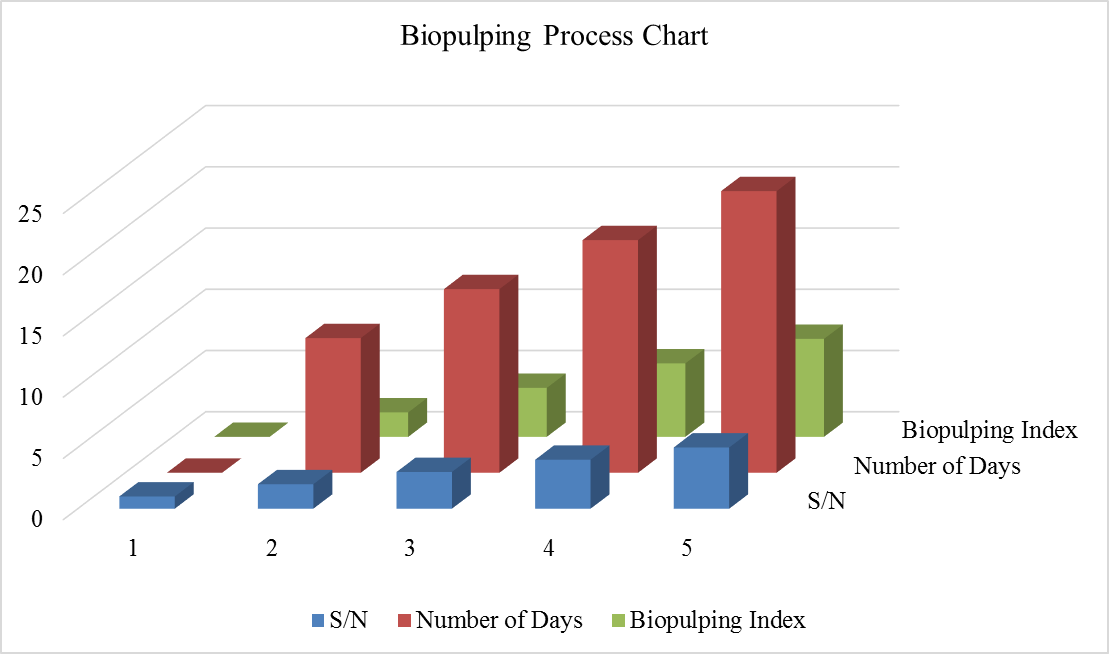Production of Non-Wood Paper from Palm and Coconut Husks
Keywords:
Bio-Thermo-Mechanical Pulping, delignification, agricultural waste, fungal treatment, eco-friendly paperAbstract
The demand for sustainable alternatives in pulp and paper manufacturing necessitates exploring non-wood raw materials. This study investigates the production of eco-friendly paper from palm and coconut husks using the Bio-Thermo-Mechanical Pulping (BTMP) model, integrating physical, thermal, and biochemical treatments to enhance fiber quality. Fungal isolates facilitated delignification and fiber modification, while controlled fermentation improved fiber elongation and smoothness. Chemical additives such as starch and silica gel enhanced pulp characteristics, yielding paper with high opacity (>90%) and notable water retention capacity (2.85 mL), though its tensile strength (1.5 kPa) remained below A4 paper standards. Statistical analysis (ANOVA, F = 1.0021, p = 0.3554) showed no significant differences among experimental groups, highlighting BTMP's consistency. The BTMP model offers economic and environmental benefits by reducing reliance on capital-intensive machinery and promoting a scalable, energy-efficient process. This approach supports sustainability by reducing deforestation, improving agricultural waste management, and mitigating greenhouse gas emissions through the valorization of residues. The findings confirm palm and coconut husks as viable raw materials for sustainable paper production. Future research should focus on optimizing microbial treatments, refining fiber reinforcement, and conducting pilot-scale studies to validate scalability. This study advances sustainable paper manufacturing by transforming agricultural waste into industrial resources, fostering environmental conservation, and promoting a circular economy.


